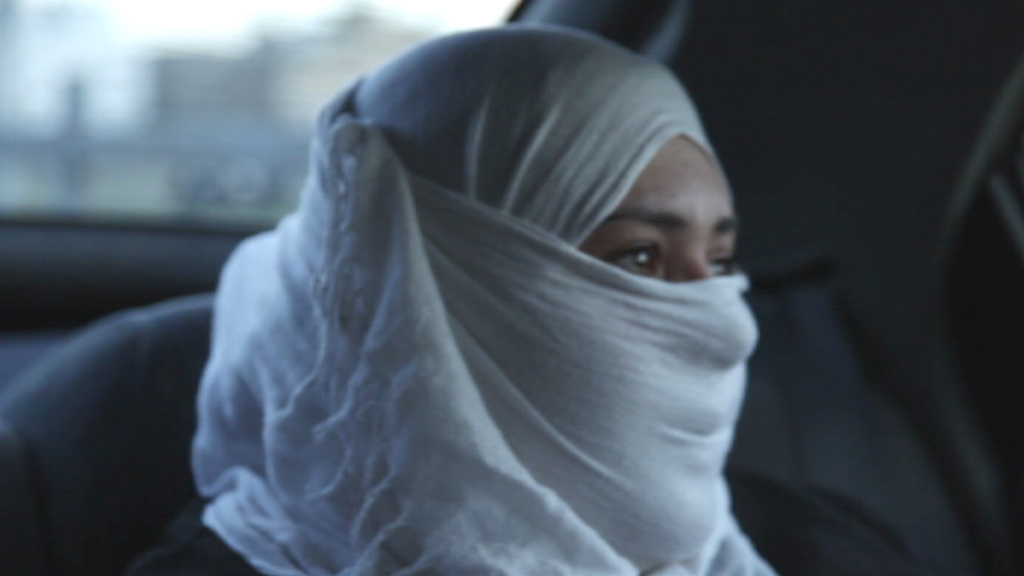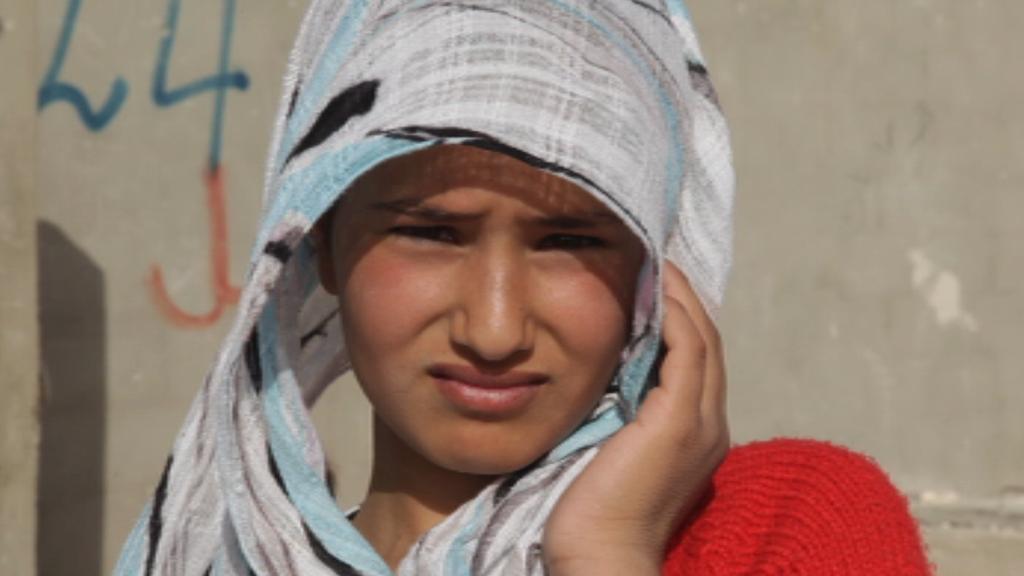Rape and sham marriages: the fears of Syria’s women refugees
 Jackie Long
Social Affairs Editor and Presenter
Jackie Long
Social Affairs Editor and Presenter
Thousands of Syrians fled to Jordan’s Zataari refugee camp to escape violence at home. But now women and children live in fear of kidnap, rape and sham marriages in the camp meant to keep them safe.
If agony has a sound, it is the cry to God made by 100-year-old Shahira, as she sits broken and bereft in the Zaatari refugee camp in Jordan.
In her black hijab, she raises her hands to the sky, almost unable to make sense of her own distress. “Bashar, Bashar,” she keeps crying. “Why are you butchering us?”
Shahira is one of a hundred thousand Syrians whose home is now the sprawling, tented city of Zataari. They fled the fighting to seek shelter and safety. But for many women the camp has offered them anything but.
“Three girls in our camp were kidnapped,” explains Israa Mohammed. “They raped them. Then they brought them back to the camp. The Jordanian guys, they come to harass Syrian girls from the age of seven or six.”
They see we don’t have money. They want to exploit us. Give me your daughter for 200,000 lira or 100,000 lira. It’s exploitation. Abu Sanad, father
Such reports of women being kidnapped, assaulted or raped abound around the camp. Women say security is non existent. They are too afraid even to go to the toilet at night alone.
“I come with my daughter, she enters and I stand here waiting for her,” says Um Hammad. “There are girls who don’t come to the toilet at night. We stay until the morning, holding it in.”
VIDEO: Jonathan Miller witnesses dramatic late-night escape of a group of Syrian refugees

Um Majed (pictured left) is a Syrian housewife from Homs. She says she understands the refugee families and women who give into the demands of the men from the Gulf offering desperately needed cash. These are “dark days” for Syrians, she offers up by way of reasoning.
She has chosen her own way to deal with such bleak times. She has become a marriage broker, offering Syrian girls for sex.
“He comes for a coffee and he sees her with her hijab, he pays the 100 dinar and leaves,” says Um Majed, outlining the charges. “If he wants to marry her, he has to pay 1,000 or more. He has to sign a marriage agreement and he takes her and even after one hour they can get divorced. It’s none of my business.”
Vigilantes
Frustrated by the authorities’ inability to deal with this problem, residents of the camp are forming vigilante groups. They patrol the area, they say to protect their women. They mete out their own justice on the men they decide are the perpetrators.
It is one of many problems the authorities now face. Young men, angry, frustrated and bored are running out of control. Several riots have broken out in the camp.
The United Nations says it is working hard with the Jordanian government to set up a proper policing structure and have announced a new security initiative.
But it may never ease the pain of the women refugees. That will only be soothed when they are allowed to go back to their beloved Syria.
Um Majed throws her head back and sighs. “I wish to go back to Syria. I wish to breathe the air of my country. Inshallah, I will go back.”
But it is more in hope than expectation. She recognises what their future might hold.
“I hope we don’t have the same destiny of the Palestinians who went out of their country and never went back.”
The film on the plight of Syria’s refugees will be shown on Channel 4 News on Thursday from 7pm. It was directed, produced and filmed by Sharron Ward. The editor was Agnieszka Liggett.

The marriage market
As well as the fear of attack , there is another more insidious assault on the women and girls of Zaatari. Men – usually from Saudi Arabia and other gulf states – are given free rein at the camp. Coming in the guise of benefactors offering charity, in return many want a wife.
But these are marriages of convenience – for the men at least. So called “pleasure marriages”, they give cover – a sheen of respectability – to what is often wealthy men exploiting vulnerable women for sex.
Abu Sanad is the father of two daughters. “People from Jordan, from Saudi Arabia, from Qatar, they come and ask: ‘Do you want to give your daughters for marriage?'” he said.
“What do they see us as? A market place for selling? Like selling sheep. They see we don’t have money. They want to exploit us. ‘Give me your daughter for 200,000 lira or 100,000 lira’. It’s exploitation.”
The men often promise the earth. “Lama” says she was told she would “live like a princess.” But the reality often means a few days or weeks out of the camp, then they are dumped alone in Jordan, or left to come back to Zaatari, humiliated and abused.
Gallery: Inside Jordan’s Zaatari refugee camp